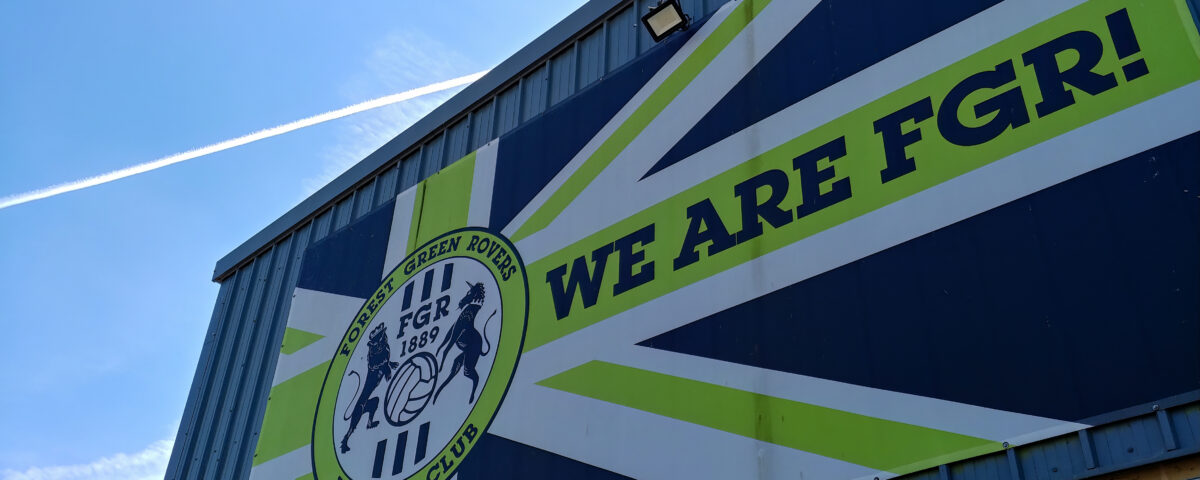
How the UK’s Cold Snap Is Shaping Energy Markets — And What Businesses Should Do
November 20, 2025
GLEG UK Energy Market Update…
November 24, 2025At Forest Green Rovers, sustainability isn’t a branding exercise—it’s the club’s DNA.
As a small club with a global voice, Forest Green Rovers (FGR) has become football’s most radical sustainability pioneer. From Nailsworth to the world stage, FGR is proving that a football club—even one in the lower leagues—can drive seismic change in how sport thinks about climate, energy, food and community.
Why the move matters
Football clubs don’t just exist for 90 minutes on a Saturday. They shape behaviour, drive local economies, inspire young people and influence culture at scale. With every matchday comes energy use, travel, purchasing, waste, and community engagement. When a club chooses to act boldly, others take notice.
Forest Green Rovers understood this early. Under the leadership of Dale Vince, the club reframed its mission: use football as a platform to accelerate environmental action. Their stance is clear: football has the reach, responsibility and opportunity to move society toward a more sustainable future—so why not lead from the front?
The green playbook in action…
1. The world’s first carbon-neutral football club
FGR became the first football club certified carbon neutral by the United Nations—an achievement built on a decade of transformative choices:
- 100% renewable energy, with solar power integrated into the stadium
- An organic, pesticide-free pitch
- Zero fossil-fuel heating and a commitment to all-electric systems
- Continuous measurement and reduction of operational emissions
Their next step is Eco Park—a groundbreaking, all-wooden, ultra-low-carbon stadium set to redefine what sustainable sports infrastructure looks like. It is designed to be the lowest-carbon football stadium on Earth, with extensive green space, efficient energy systems and a construction philosophy rooted in circularity.
2. Leading the plant-based revolution in sport
FGR is the first—and still the only—fully vegan football club. All matchday food, player meals and hospitality menus are plant-based. Why? Because food is one of the biggest drivers of climate emissions, and shifting to plant-based diets is one of the fastest ways to cut environmental impact.
Their approach has become iconic: from award-winning vegan pies to community food education programmes, FGR uses cuisine as a channel to spark curiosity, healthier choices and climate awareness.
3. Materials, waste and responsible sourcing
FGR doesn’t treat sustainability as a bolt-on. It shapes every purchasing decision:
- Kits made from recycled plastic and coffee waste
- Bamboo-based products replacing plastics
- Compostable food packaging
- Rigorous recycling and waste-reduction systems
- Electric vehicle charging and sustainable matchday travel initiatives
This is sustainability embedded—not superficial.
4. Community, education & environmental leadership
For FGR, sustainability isn’t just about the stadium—it’s about the community around it.
- School outreach introduces children to healthy eating and environmental action.
- Local programmes encourage low-carbon travel, conservation and biodiversity.
- Partnerships promote climate literacy and empower local organisations to adopt greener practices.
FGR acts as a sustainability ambassador, using its visibility to drive regional and national conversation.
Final whistle
Forest Green Rovers aren’t just “doing sustainability”—they’re redefining what a modern football club can be. With carbon neutrality, plant-based leadership, progressive stadium design and community-first programmes, FGR stands as a blueprint for how sport can help shape a greener, healthier and more regenerative future.
At GLEG, we help sports organisations and businesses accelerate that journey. Whether you’re beginning your sustainability strategy or advancing towards net zero, our team can support you in creating change that’s ambitious, credible and impactful.
📩 Let’s build a cleaner, fairer future—together. Contact us at hello@gleg.co.uk.

